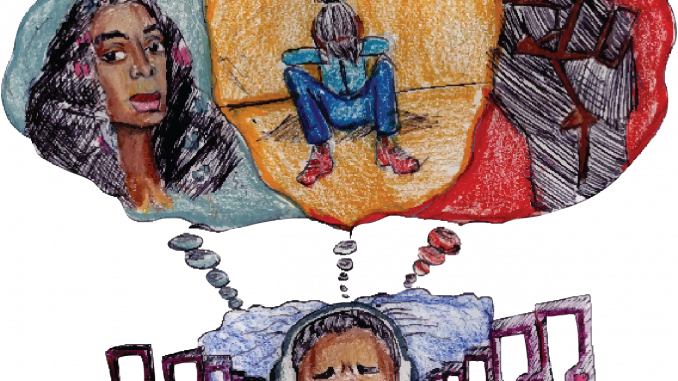
For the past two months, I’ve been listening to Solange’s new album “A Seat at the Table.” Her musical expression of Black frustration, healing and identity has been playing like a soundtrack to my life. When I hear lyrics like “Don’t touch my pride” and “They say the glory’s all mine,” I’m filled with an unmatched empowerment. The album has made me think about what it means to be Black in society, but also has encouraged me to reflect on my own personal struggles with my Blackness — an identity I have sometimes struggled with.
When I was 8 years old, I moved from Queens to a mainly white neighborhood on Long Island. At my new elementary school, being Black and outwardly proud — something that once came so easily to me — became harder. I remember my fifth-grade teacher telling me how ridiculous it was that former male slaves were given the right to vote before educated white women. She directed it toward me, prompting me to choose between our shared womanhood and my Blackness. I remember feeling conflicted, since I wouldn’t have been able to vote either way.
I remember when Barack Obama first won the presidency in 2008, I heard a bunch of unwanted racial comments from my classmates.
“The White House is not so white anymore,” they whispered, thinking I wouldn’t hear.
I always felt like I somehow had to defend all things Black to anyone who wanted to denigrate them. I found myself trying to convince people that Black was good, using characteristically Black cultural icons like rap music or “The Proud Family,” the only Black children’s cartoon on the air at the time.
I can still remember how hard a time I had telling my teacher and classmates I watched the movie “The Color Purple,” not to mention “The Oprah Winfrey Show” and a slew of 1990s Black sitcoms.
It made me feel alone. Somehow, admitting to doing “Black” things felt equivalent to admitting guilt to a crime. To what crime, I don’t know.
Once I moved on to high school, things were supposed to change for the better. There were more Black people in my grade, and I knew I had to have them as my friends. I was eager to be their friends. I needed that validation. I craved it.
But I never got it.
I was rebuffed a lot. I was never given a reason why, but I knew why. People told me I was shy and awkward, I spoke “too white” and I didn’t know music all too well. Simply, I wasn’t Black enough.
I always had difficulty making friends, but this time I felt like not making friends with other Black people took something away from me, made me less than. I internalized that. If I was not the right kind of Black, who was I?
These feelings of Black inadequacy stuck with me, and remain today. When I am with Black people, I am afraid of being too weird and awkward. When I am with white people, I am afraid of being too angry and expressive.
Being too Black, not being Black enough — I now know those definitions are arbitrary and no one can define my brand of Blackness or take it away from me. But sometimes it’s easy to forget.
To help me remind myself, I think of lyrics from Solange’s song “Rise.”
“Walk in your ways so you won’t crumble,
Walk in your ways so you can sleep at night,
Walk in your ways so you can wake up and rise!”
To walk in my ways is to accept my full self, my full Black self.
Chineme Aniagba can be reached at chineme.aniagba@temple.edu.


Be the first to comment